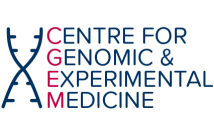Riccardo Marioni Research Group
Genetics and epigenetics of cognitive ageing
Section Head: Translational Epidemiology

Research in a Nutshell
I have a background in Epidemiology and Biostatistics and am Chair of Molecular Epidemiology of Ageing. My primary research goal is to use computational models to understand the molecular mechanisms that underlie Alzheimer’s disease and to enhance prediction of the disease.
I have a passion for research into ageing and, in particular, examining the genetic and environmental contributions to health, cognitive ageing, and dementia.
In recent years, much of my research has focused on DNA methylation – chemical changes to DNA that turn genes on and off and that can be added and removed over the lifespan. These methylation marks can be influenced by genes, lifestyle, and the environment, making them ideal candidates to help us understand the interaction between nature and nurture. We are currently using novel methods to model multiple omics datasets (genetics, epigenetics, and proteomics) together to better understand the molecular mechanisms that underlie dementia and to improve risk prediction.
Much of my group’s work is carried out using data from deeply phenotyped cohorts, such as Generation Scotland, PREVENT Dementia, and the Lothian Birth Cohorts of 1921 and 1936.
Marioni Group Website (external)

People |
|
| Professor Riccardo Marioni | Group Leader |
| Daniel McCartney | Postdoctoral Research Associate |
| Karla Monterrubio-Gomez |
Postdoctoral Research Fellow - co-supervised |
| Jure Mur | Postdoctoral Research Fellow |
| Yipeng Cheng | PhD Student - Edinburgh Helsinki Program in Human Genomics |
| Ola Chybowska | MRC Precision Medicine PhD student |
| Ella Davyson | Biomedical AI PhD student (co-supervised) |
| Josie Robertson | ECAT PhD student |
| Barry Ryan | Biomedical AI PhD student - co-supervised |
| Hannah Smith | WT Translational Neuroscience PhD programme |
Contact
Scientific Themes
Genetics, methylation, GWAS, prediction, ageing, cognitive decline


